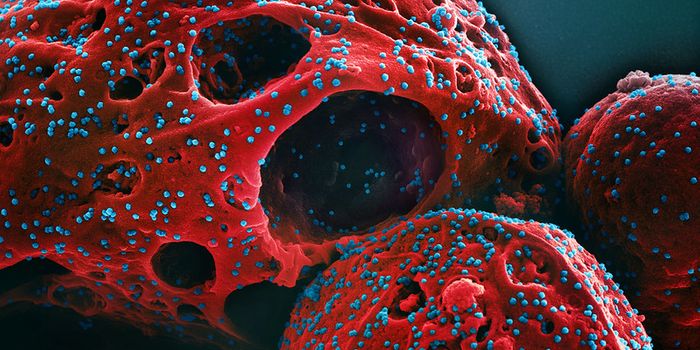Chronic fatigue syndrome is a complex, mysterious condition about which little is known. It varies between individuals but primarily causes extreme fatigue that doesn’t go away with rest and cannot be explained by any underlying medical condition. There is no test for the syndrome, and people that suffer from it usually have to go through a battery of tests to rule out other diseases as well as consultations with experts. Between 836,000 and 2.5 million Americans suffer from it.
Researchers at Cornell University have
reported in the journal Microbiome that for the first time, biomarkers of chronic fatigue syndrome have been identified in the gut and in blood.
Myalgic encephalomyelitis (ME) is often considered a better clinical term for chronic fatigue syndrome (CFS), thus the syndrome is usually referred to by clinicians and scientists as ME/CFS. In the study, the investigators show that they were able to correctly diagnose ME/CFS in 83 percent of patients using analysis of stool samples and blood work, demonstrating both a noninvasive diagnosis and a step toward finding the cause of the disease.
"Our work demonstrates that the gut bacterial microbiome in chronic fatigue syndrome patients isn't normal, perhaps leading to gastrointestinal and inflammatory symptoms in victims of the disease," explains Maureen Hanson, who is the Liberty Hyde Bailey Professor in the Department of Molecular Biology and Genetics at Cornell and the senior author of the work. "Furthermore, our detection of a biological abnormality provides further evidence against the ridiculous concept that the disease is psychological in origin."
The study involved Dr. Susan Levine, a specialist in ME/CFS specialist, who recruited 48 people with an ME/CFS diagnosis and 39 healthy people to provide blood and stool samples for the work.
Regions of microbial DNA taken from the stool samples were sequenced in order to identify various types of bacteria. The investigators found that the diversity of types of bacteria was significantly reduced, as well as fewer species of bacteria known to be anti-inflammatory in patients with ME/CFS compared to healthy control samples, something that is also seen in people with ulcerative colitis and Crohn's disease.
The researchers also located specific markers of inflammation in the blood and postulate that a leaky gut or more technically, microbial translocation caused by intestinal problems, allows bacteria from the intestines to enter the blood. There in the circulation, an immune response would be triggered by the presence of microbes in the blood, which then exacerbates symptoms as it causes inflammation.
The scientists cannot yet distinguish whether the alterations in the gut microbiome are a cause or a consequence of disease.
"In the future, we could see this technique as a complement to other noninvasive diagnoses, but if we have a better idea of what is going on with these gut microbes and patients, maybe clinicians could consider changing diets, using prebiotics such as dietary fibers or probiotics to help treat the disease," says Ludovic Giloteaux, the first author of the study.
It was also recently
announced, unrelated to this study, that Professor Derya Unutmaz, M.D., of The Jackson Laboratory for Genomic Medicine has been awarded a five-year, $3.3 million federal grant to look for biomarkers of ME/CFS.
The Swedish National Association for ME Patients put together a video, above, that describes the experiences of some patients suffering from this disease.
Sources:
Science Daily via
Cornell University,
Microbiome,
Medline,
Journal of Internal Medicine,
The Jackson Laboratory










